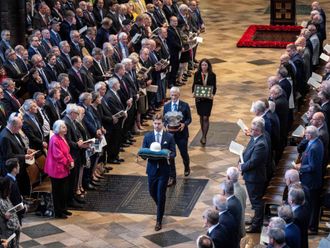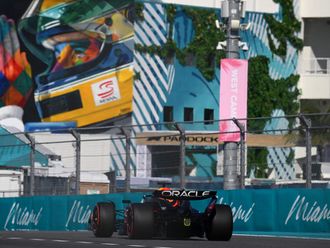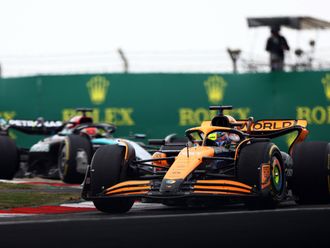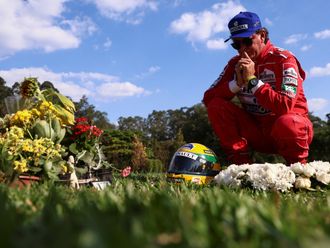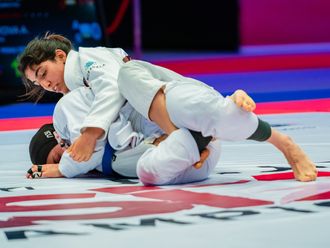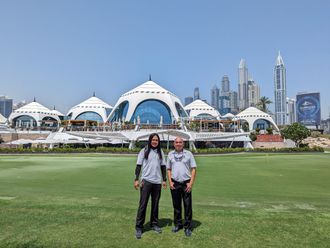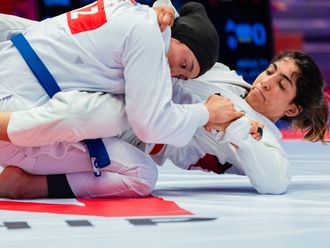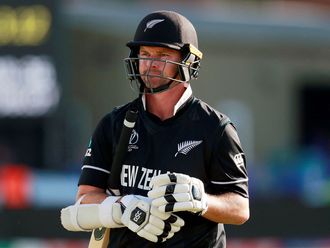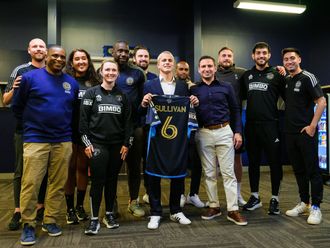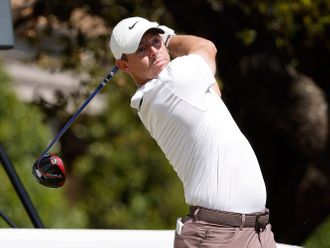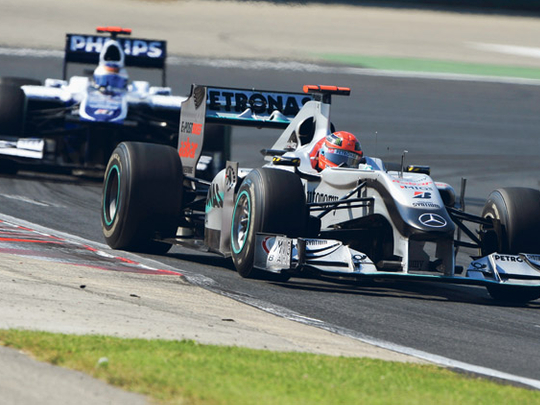
London: Michael Schumacher's return to Formula One after three years in retirement reached a new low in Hungary.
His defence of 10th position from Rubens Barrichello in the closing stages of the race was considered so dangerous by the race stewards that they imposed a 10-place grid penalty on the German at the next race in Belgium. Many at the Hungaroring thought he had got away lightly.
By squeezing his former team-mate up against the pit wall and then putting the Brazilian on the grass at speeds approaching 200mph, Schumacher showed, by endangering both their lives, that he has lost none of the ruthlessness that took him to seven world titles. What is no longer in his armoury, however, is the speed that won 91 grands prix. "Horrible," yelled Barrichello over the radio as he just got by. "That should be a black flag."
After the race Barrichello, a veteran of 299 grands prix starts, was right to refer to Schumacher's tactics as "a go-kart manoeuvre". He also pointed out that there was little point talking to Schumacher about the incident.
"I won't because it won't resolve things," said Barrichello. "You know Michael you talk to him and he will always feel that he is right. He stopped [for] three years [but] he hasn't changed at all. He is still the same guy."
Worst piece
Barrichello went on to say that Schumacher's move was the worst piece of defensive driving he had ever seen. "You would not expect after so many races for someone to do that. You would expect someone with 10 races to do that kind of thing."
Nor was the incident the first Schumacher has been involved in this season. At the Canadian grand prix in June he defended his position by running Robert Kubica's Renault off the road and later in the same race he unceremoniously chopped across the bows of Felipe Massa, damaging the Ferrari's front wing and ruining the Brazilian's race.
Since Schumacher returned at the start of the season his performances have gradually tailed off. He scored points in six of his first seven races, but in the past five he has scored twice and in only one of those has he made the top 10 in qualifying. Some of this lack of performance can be put down to a Mercedes car that is not a patch on the Brawn that preceded it, which Jenson Button drove to last year's world title. The Mercedes team principal, Ross Brawn, has been honest enough to admit that the car is not what it should be and that the team had struggled to get up to speed with the rear wing and diffuser technology that McLaren, Red Bull and Ferrari have deployed to great effect.
The real gauge of Schumacher's performance is a comparison with his team-mate, Nico Rosberg.
Hey days
The numbers are stark. Rosberg has 94 points to Schumacher's 38, has out-qualified in 10 races to two and has stood on the podium three times this season when the veteran's best finish is fourth. In his all-conquering Ferrari days Schumacher was in a race of his own at many grands prix. The team ran around him and team-mates, Barrichello included, were employed to watch his back. That was then. Formula One has moved on apace since he stepped out of his Ferrari at Interlagos in 2006 and waved goodbye. The new generation are not intimidated by the sight of that red helmet in their mirrors. Jaime Alguersuari, whose father is the same age as Schumacher, held him off comfortably for many laps in Australia.


